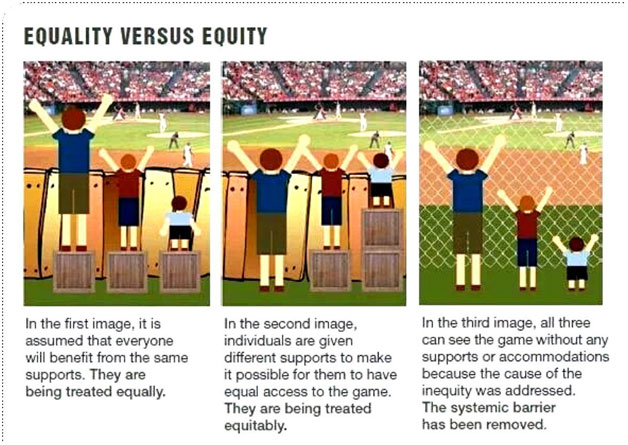“Only 20% of students are able to complete their journey from enriching education to gainful employment. The odds can be improved.”
Henry Motte-Muñoz is the founder and CEO of Edukasyon.ph, the leading edtech platform in the Philippines committed to helping students make better-informed decisions for their education, career and life choices. He has a background in finance and economics, and worked at firms like Bain Capital and Goldman Sachs before deciding to move to the Philippines in 2015.
Here, he shares his thoughts on distance learning and Philippine education in the new normal:
DepEd will be relying heavily on parents to help this coming school year. The new normal compels them to supervise schoolwork on a more constant basis. How will parents cope with this new responsibility?
This will be a challenge for parents, especially those with children who aren’t in the primary levels. For instance, if the last time you had to use algebra was 18 years ago, how are you going to explain the concept to your kids now? Additionally, they also have to think about how this new school schedule fits in their work schedule. There are going to be considerations in terms of even better organizing their limited time.
How can parents set up a conducive learning environment for their children at home?
Ideally, you will need to have an area dedicated to studying. We know, however, that this is a question of resources. Not everyone has that option. If you live in a small home with six other people, you’re not going to have that dedicated area to study. You’ll probably also have to deal with learning how to overcome distractions like having to block out other people’s conversations.
Online teaching is a different ballgame. Preparing lessons for physical classes is completely different from preparing lessons for virtual ones. How can teachers prepare for this evolution in their roles?
There are free online courses that teachers can use to reskill and upskill on their own, but transitioning to teaching online will get more manageable as the months go by. There are three batches who are dealing with distance learning: the first batch were the ones that dealt with the end of classes last March. That was a trial by fire in terms of how to comply with final requirements and so on. The later batches – those that start on August 24 and on January 2021 onwards – will benefit greatly from the iterations resulting from the first one.
Online learning is different from offline learning too. How can kids shine and succeed while being educated remotely?
I think that for students there are two factors: logistics and aspiration. There’s logistics in terms of time management and organization. There’s also the aspirational factor. Students will have to become acquainted with the concept of grit even at a young age. Because let’s face it: this is an incredibly tough situation. Let’s not sugarcoat it. People will have to overcome. I mean, we hear a lot of stories about Filipinos being so resilient. The thing about resilience is that it also sounds like survival. We don’t want students to just survive; fundamentally, we want them to thrive.
Students in particular need to realize what their purpose for getting a quality education is. It’s to give them a chance at a better future—for themselves and for their families.
I hear that only 20% of state universities will be able to do online learning at this point. What’s the most affordable solution for them to get on board?
There’s no easy answer but things will change as we go along the journey towards distance learning. I am proud to be a Filipino but one thing we’re not good at is feedback. We’re not good at hearing out criticisms. We need to have honesty and clarity in terms of our feedback loop so we can constantly improve how we can effectively implement distance learning. There will be birthing pains for sure.
No discussion on distance learning is complete without mentioning our country’s connectivity problems. Technology is a bridge for some, a chasm for others. Will this aggravate the gaps between the haves and have-nots?
The country has always had inequality. It’s still going to be a similar situation this coming SY 2020-2021. There will be inequality in the post-Covid-19 new normal. Technology is an enabler, but children that do not have technological access will struggle. That is the reality.
There’s a great meme that’s been going around that illustrates equality and how it’s different from equity. It’s an apt illustration of what true inclusion is.
 You mentioned that India is launching 12 new TV channels solely dedicated to education. What do you think of the DepEd’s plan of providing 15% of airtime dedicated to children’s programming? They’re currently working with the Presidential Communications Group towards that end.
You mentioned that India is launching 12 new TV channels solely dedicated to education. What do you think of the DepEd’s plan of providing 15% of airtime dedicated to children’s programming? They’re currently working with the Presidential Communications Group towards that end.
I think it’s a great idea! Of course it’s one-way, but people watch TV with a sense of joy. Kids can evoke that same sense of joy when learning through TV. Radio is even better. It’s a cheaper medium and can reach even the remotest areas.
You also mentioned that students are usually around their peers all day long. IATF Resolution #34 says that curricular activities such as sports fests are cancelled. What can be good alternatives for fostering camaraderie and a sense of community?
It goes back to students having to find purpose in group activities. If the joy of sports was doing sports together, then can you work out together whilst live streaming? It’s never gonna replace an actual basketball game, but if you got served half-rotten lemons, what’s the best lemonade you can make?
It’s also being philosophical and answering questions such as: why did you enjoy doing sports with others? If it’s because of reasons like the physical aspect of things, or attaining skills, or spontaneity, can you still exercise by yourself? Watch YouTube videos to improve? Find other ways of being spontaneous with your friends? Understand your why—then you can think of substitutes.
You normally ask this much introspection from adults, but this may be a silver lining that we get a generation that’s a lot more introspective and that understands itself much better.
What role do you see platforms like Edukasyon.ph playing as we learn to live in this brave new world?
We encourage students to really explore what’s out there. That’s at the heart of Edukasyon.ph. We’re not the silver bullet for education in the Philippines, but we want to create an ecosystem where students can find all the support that they need. The role we are trying to play is one of a support system.
We always go back to how we can help students make the best out of the cards they were dealt with. We can’t change the cards, but we can change their understanding of the other cards they might not know they were also dealt with: opportunities they didn’t know existed, scholarships, free online courses, really useful blogs. It’s helping the students through all the decisions they have to make and helping them stay resilient. It’s making sure they find their joy and their purpose.
It’s not easy for anyone. It’s gonna be hard work, but if you know your why, it’ll help you figure out the best available how.



